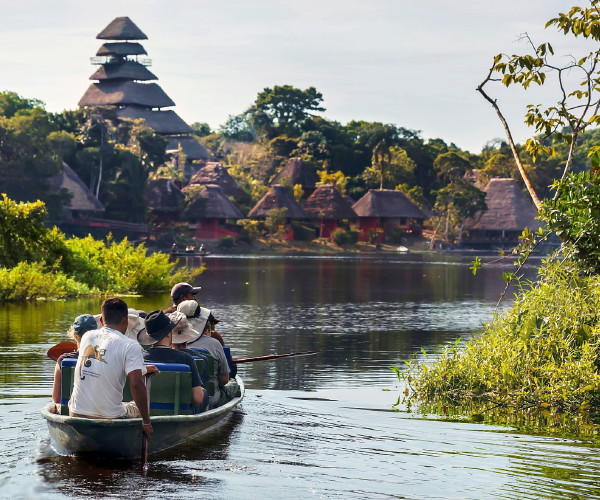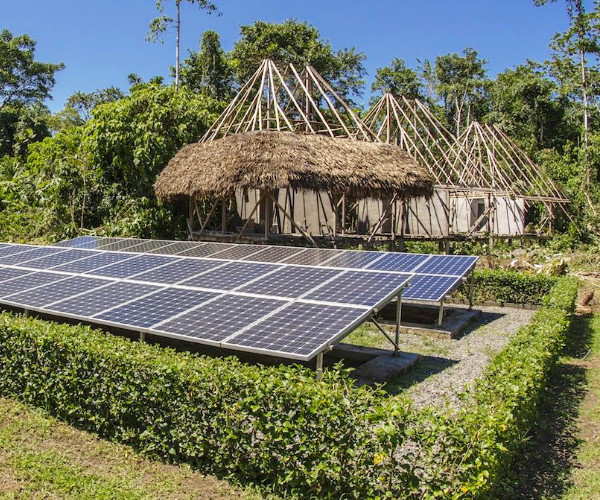Despite being the smallest contender to make the list of the top ten most biodiverse countries, Ecuador nonetheless packs a big punch and exceeds all expectations in nature-based sustainable travel.
Though having taken a hit from the recent pandemic, premier Ecuadorian tour operators continue to lead the way regarding “sustainable ecotourism” – meaning travel that’s careful to conserve the natural environment you explore and improve the well-being of local peoples and places you visit.
Ecuador combines its must-visit tropical rainforests, the Galapagos Islands, prehistoric volcanoes, and culturally rich indigenous communities with respectful and responsible conservation. To experience such journeys, here’s a list of some of our favorite sustainable ecotourism destinations here in Ecuador.
1. Napo Wildlife Center: Discovering the Amazon
Amazon rainforest vacations allow you to paddle canoe on hidden creeks and lakes to discover monkeys, sloths, and pink river dolphins. Trips deeps into the jungle also offer authentic cultural contacts with indigenous rainforest communities.

The best tropical adventure tours in Ecuador can be experienced in Ecuador’s Yasuni National Park, a beautiful and incredibly biodiverse corner of the Amazon Rainforest. Home to indigenous tribes and a wealth of wildlife, this UNESCO-declared Biosphere Reserve covers nearly 2.5 million acres of lush tropical rainforest.
The only lodge within the park is the Napo Wildlife Center, which can provide you with a mind-altering introduction to the Amazonian rainforest – an experience as unique as this luxury lodge itself.
While offering a mind-boggling array of jungle wildlife species in their native surroundings, the lodge itself offers five-star accommodations exuding luxury in every respect. The renowned first-class service suitably complements Napo’s exquisite location.
Though upscale, the lodge maintains its grassroots eco-tourism focus. In fact, the Napo Wildlife Center is a prime example of a sustainable project operated in conjunction with the local indigenous Kichwa Anangu Community, whose members direct the operation and benefit from all proceeds.

Being locally based, investments are continuously made in environmentally conscious local infrastructure. For example, energy is generated by solar panels, industrial batteries, and silent generators, which is an efficient system with minimal environmental impact. Even the…
Click Here to Read the Full Original Article at A Luxury Travel Blog…
